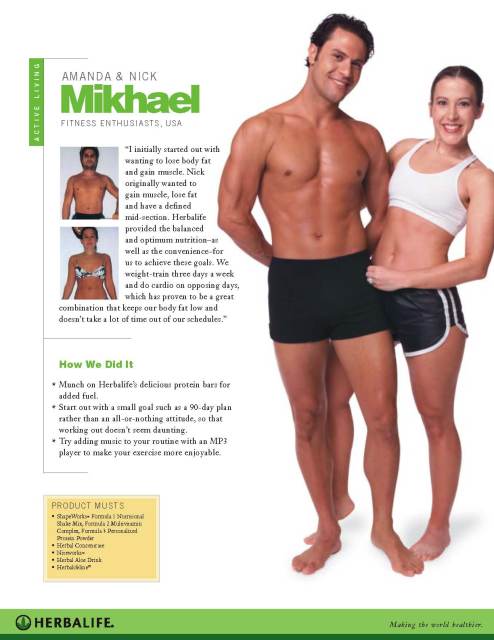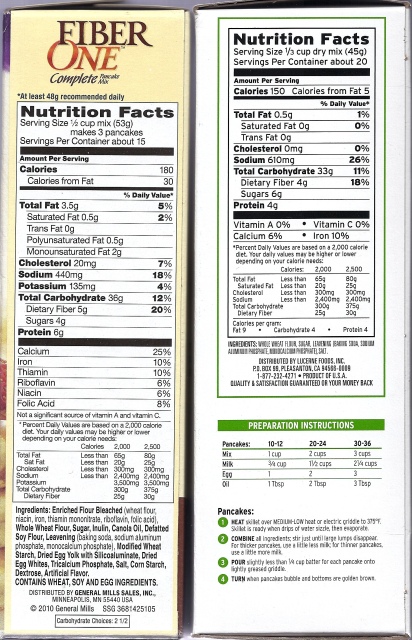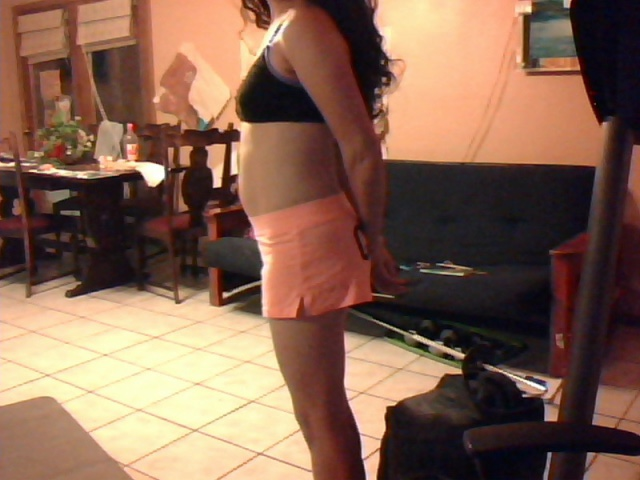plateau?
Question
Please help me..I have lost 104lbs in the last year by eating healthy lowfat ,low calorie foods.
I exercise 3-4x a week walking up to 5 miles a day on my treadmill and strenght training up to 4x a week.Why have i been at the same weight for the last six months? I need to loose 15 more lbs and it is impossible.I use a low calorie plan 1200-1400 day. I have lost 104 now why cant i loose 15 more?help me please.
Hi Connie,
First, congratulations on losing 104 lbs! That is a fantastic achievement.
You haven't mentioned what your height or weight are, but I'm wondering if you are within your healthy weight range (defined as a Body Mass Index between 18.5 and 25) If you don't know what your BMI is, you can calculate it here:
http://www.cdc.gov/nccdphp/dnpa/bmi/index.htm I suspect you may now be within a healthy weight range, and this is why you are having so much difficulty losing the last little bit. Our bodies all seem to have a weight they are comfortable at, and sometimes this is not the weight we would like it to be. We are not all meant to be a size 2!
You are doing the right things, the walking and strength training you are doing are exactly what I would recommend. You may have to increase the walking to 5-6 days a week if you really want to try and lose that final 15 pounds.
Another thing is that you are probably not eating *enough* calories! I know this seems counterintuitive, but it can actually be harder to lose weight if you restrict your calorie intake too much. With all the activity you're doing, I wouldn't recommend going much below 1800 calories per day. In fact, I am not a big fan of counting calories at all, it is not an effective strategy to maintain weight loss long term.
Here are some of my general tips for promoting weight loss. You're already doing some of these, but you might find a few things that can help you "tweak" your diet a bit.
1. Think 揾ealthy food? not calories!
Counting calories is not an effective long term strategy for promoting weight loss or maintaining a healthy weight. Instead, focus on choosing foods that are low on processing and high in nutrients such as vitamins, minerals, and dietary fibre most of the time.
2. Get Enough Calcium!
Scientific research has demonstrated that dietary calcium plays a role in weight control. Calcium helps to regular fat storage and promotes fat loss in the abdominal area.
Eating about 1000 mg of calcium per day (from food, not supplements), equates to the burning of about 100 more calories of body fat per day (or about 10 pounds of fat per year!)
Choose 8 servings from the following list to meet your daily goal:
?cup calcium fortified orange juice
?cup fortified tomato juice
1 cup cooked or 2 cups raw greens (e.g. kale, collard greens, broccoli)
?cup cow's milk, soy milk, or yogurt
?oz cheese
?cup calcium-set tofu
?cup almonds
2 tbsp almond butter or sesame tahini
?cup soy nuts
1 oz calcium-fortified breakfast cereal
Although 8 servings sounds like a lot, many of the serving sizes are quite small. For example, if you include ?cup of fortified orange juice as well as ?cup milk on cereal at breakfast, 1.5 oz of cheese on your sandwich at lunch, 1 cup of milk with supper, and ?cup of yogurt plus ?cup of almonds for a snack, you've gotten in 8 servings!
3. Eat breakfast
About 40 percent of adults skip breakfast at least 4 times per week. Don't be one of them! Research has demonstrated that breakfast skippers weigh more than breakfast eaters. People who eat breakfast actually consume fewer calories by the end of the day than breakfast skippers. If you are pressed for time in the morning, or don't feel up to eating right after you get up, pack a portable breakfast (e.g. muffin or cereal bar, fruit cup or fresh fruit, yogurt) and nibble throughout the morning.
4. Eat the RIGHT kind of carbs
Yes, carbs have been elevated to dietary demon status lately - but they shouldn't be. Your body needs carbohydrates to function properly. The key is to choose the right types of carbs. Steer clear of overprocessed foods like white bread, and increase your intake of healthy whole grains, fruits, and vegetables. One key benefit of healthy carbs is that they contain fibre, which helps you to feel full, so you don't overeat.
Good choices include:
Breads and baked goods made with whole grain flours, such as whole wheat, oats, or rye
Whole grain breakfast cereals, like Raisin Bran, Corn Bran, or Cheerios
Brown rice, couscous, barley, kamut, or millet
Fresh, frozen or canned fruits or vegetables
Legumes such as lentils, split peas, chickpeas, black beans, or baked beans
5. Beware of "Snackwell's Syndrome"
Due to the focus on low fat diets, many people have forgotten that calories count too! Just because a food is low in fat does not mean it is low in calories (often fat is replaced with more sugar). So even when consuming lower-fat versions of foods, continue to monitor your portion sizes!
6. Include adequate amounts of protein and fat
While it is not necessary (or even healthful) to consume a high-protein diet to promote weight loss, including adequate protein in your diet is important. Consuming protein foods at each meal will help you to feel satisfied for longer. Small amounts of fat can have the same effect ?just choose healthy fats like olive or canola oil, or the fat naturally present in foods such as nuts or avocadoes.
7. Avoid 搎uick fixes?br>
Although potions and pills may promise miracles, they will not deliver lasting results. You did not gain weight overnight, and you can't take it off overnight either! Studies show that people who lose weight quickly are likely to gain it all back. Permanent weight loss takes place much more slowly. Be patient and you will achieve your goal.
8. Set realistic goals
A safe rate of weight loss is 0.5 to 2 lbs per week. So, once you have determined your target weight, set a realistic time frame to get to your goal weight.
9. Get moving!
Regular physical activity is absolutely essential to promoting and maintaining weight loss. Much research has shown that individuals who commit to regular exercise are the ones most likely to maintain weight loss.
If the thought of physical activity intimidates you or makes you cringe, a great way to start is by purchasing a pedometer and using it daily.
A study of women aged 19-71 who walked 10,000 steps per day for 8 weeks, found that nearly half of the women reported losing weight during the 8 week period.
A pedometer increases your awareness of your daily activity level. You can purchase a basic one for about ten dollars. Start out by keeping track of how many steps you are currently taking per day, then aim to add 1000-2000 steps per day until you hit 10,000. This is the equivalent of about 8 km (5 miles). Squeeze in more steps by taking 5 to 10 minute walking breaks several times throughout the day, taking the stairs instead of the elevator, and walking to destinations less than 1 km away.
10. Practice 揺xtreme self care?br>
Taking good care of yourself is crucial to both your weight loss success and your overall ability to live a satisfying life. Make sure to get enough sleep, and treat yourself to what your body and spirit needs ?a long, hot bath, a massage, or an evening curled up with a good book and a hot cup of tea. You are worth it!
Hope that helps!
Karen
www.getfitwithkaren.com
Related Articles
-
deficiency of salt
QuestionI would like to know if a deficiency of salt (chloride an
-
How much should I weigh?
QuestionHi! :) I think its probably because of BDD but I am partl
-
Why cant I lose weight???
QuestionHi my name is Alison and I am nearly 15. I have lost 15 K
-
Calories and good fats
QuestionHi! I was wondering if it is ok if i eat about 26 a
-
dates in dieting
Questioni used to be a chocoholic and now im switching to a healt
-
xenical one capsual
QuestionI am having obesity weight 100 kg and my joint space is s
- DON'T MISS
- Military marathoner continuing to gain weight
- Nutrients in potato skin
- Terribley fat
- General Weight Loss
- Recommend Nutrition Books
- Plateau, cheating, and healthy eating
- Meal plan for peptic ulcer?
- How to lose the weight
- nutrition supplements for muscle building
- Will multivitamins prevent me from losing weight?




